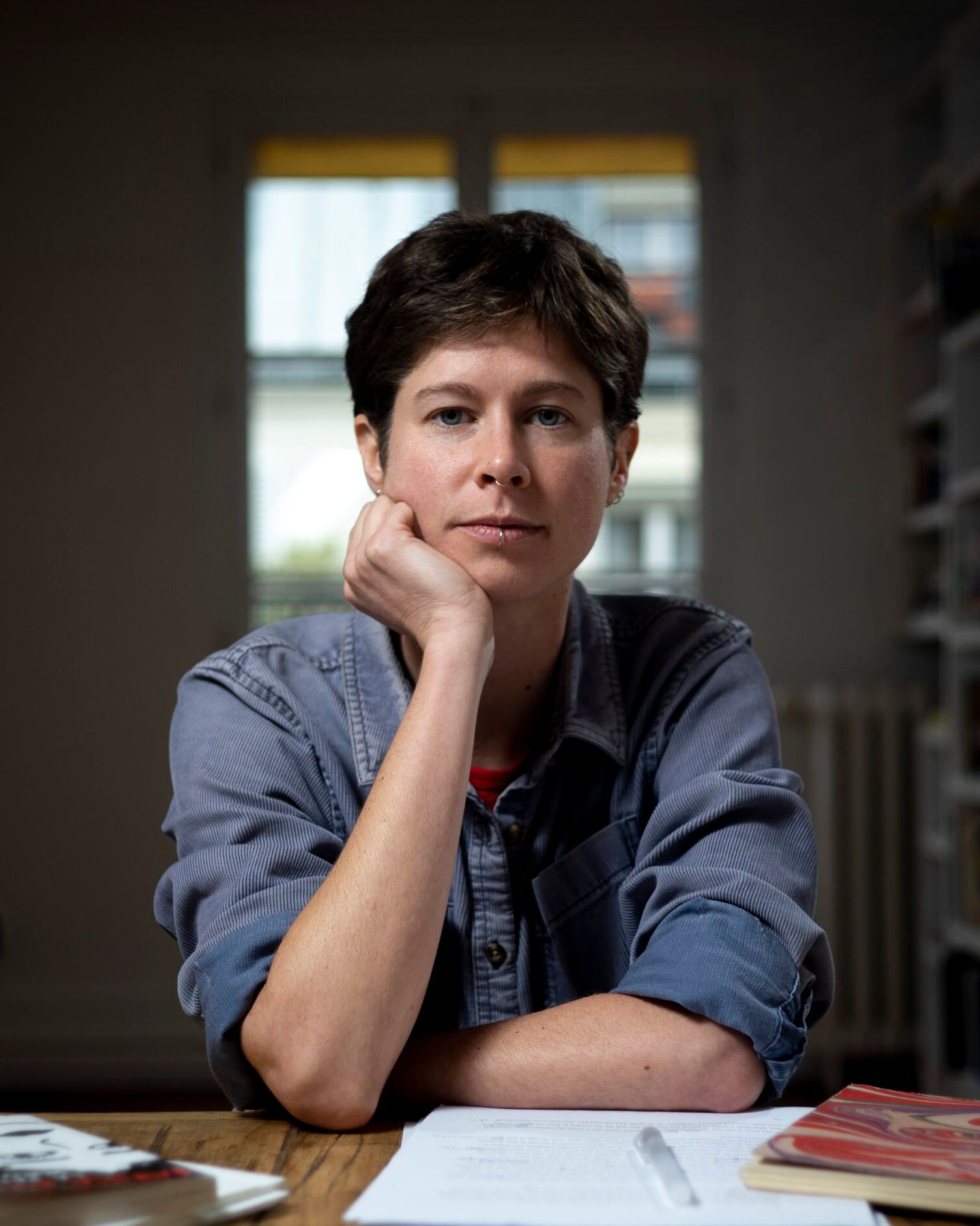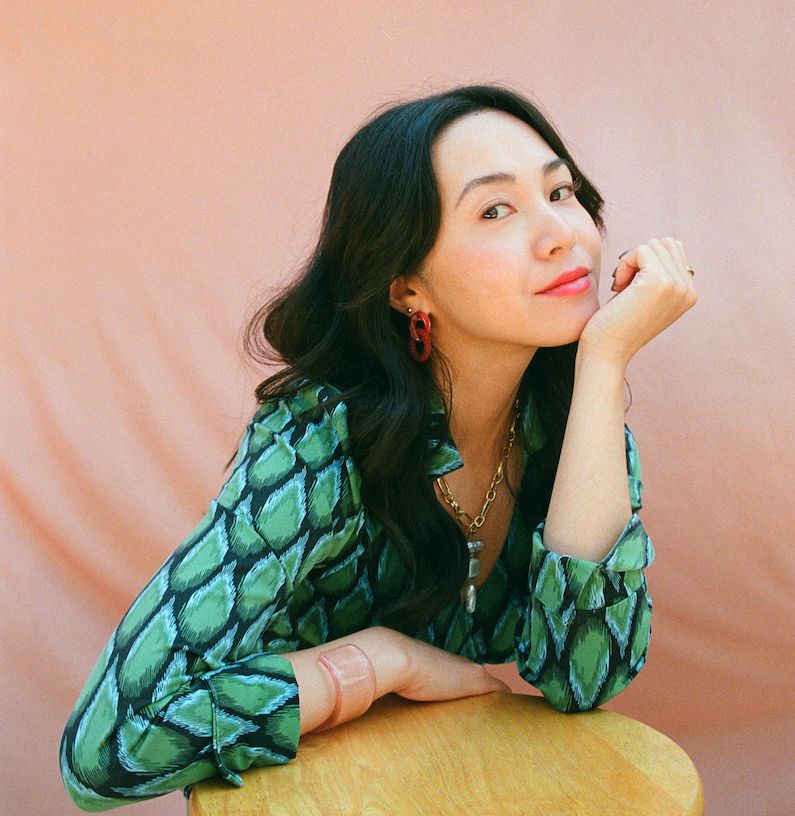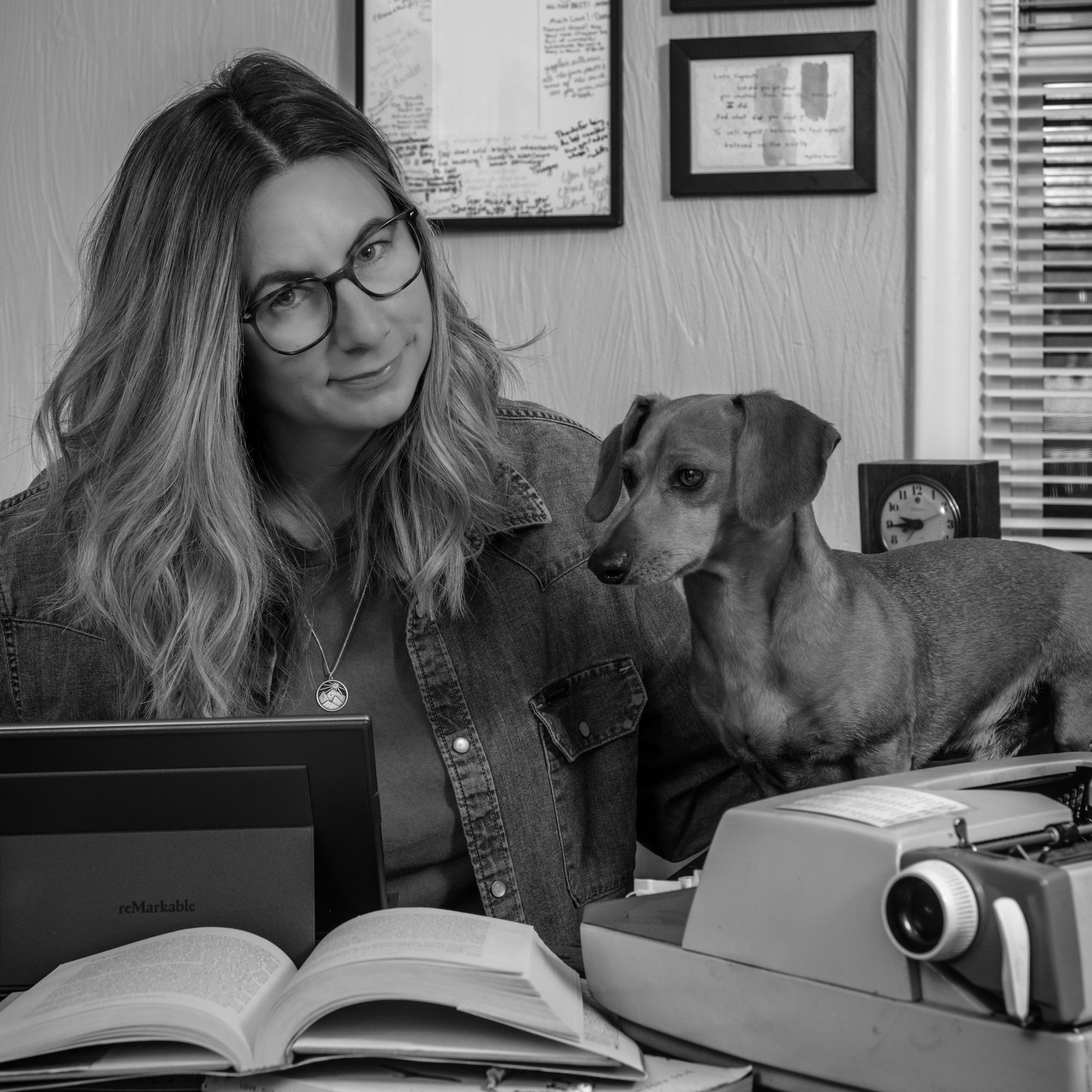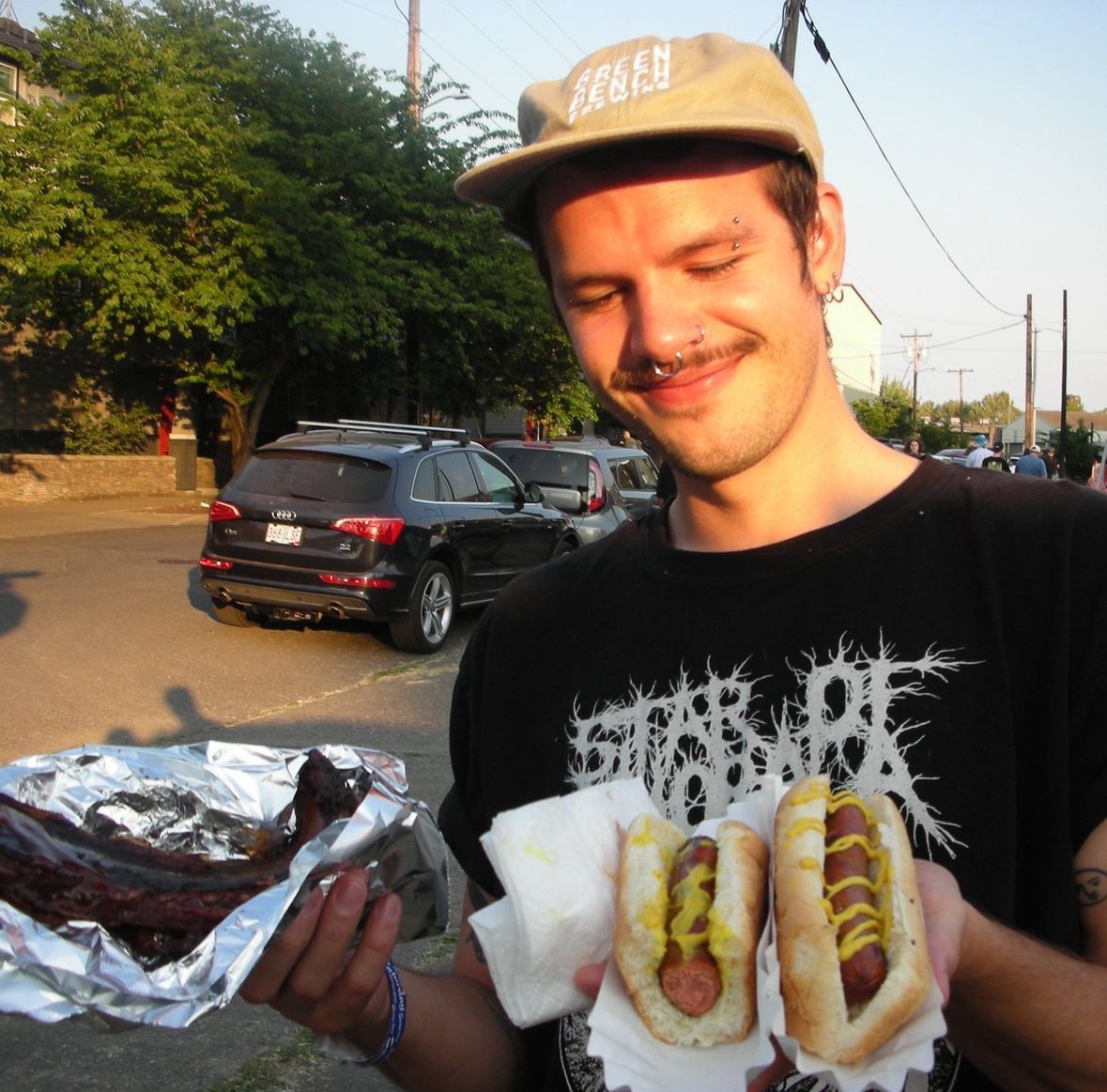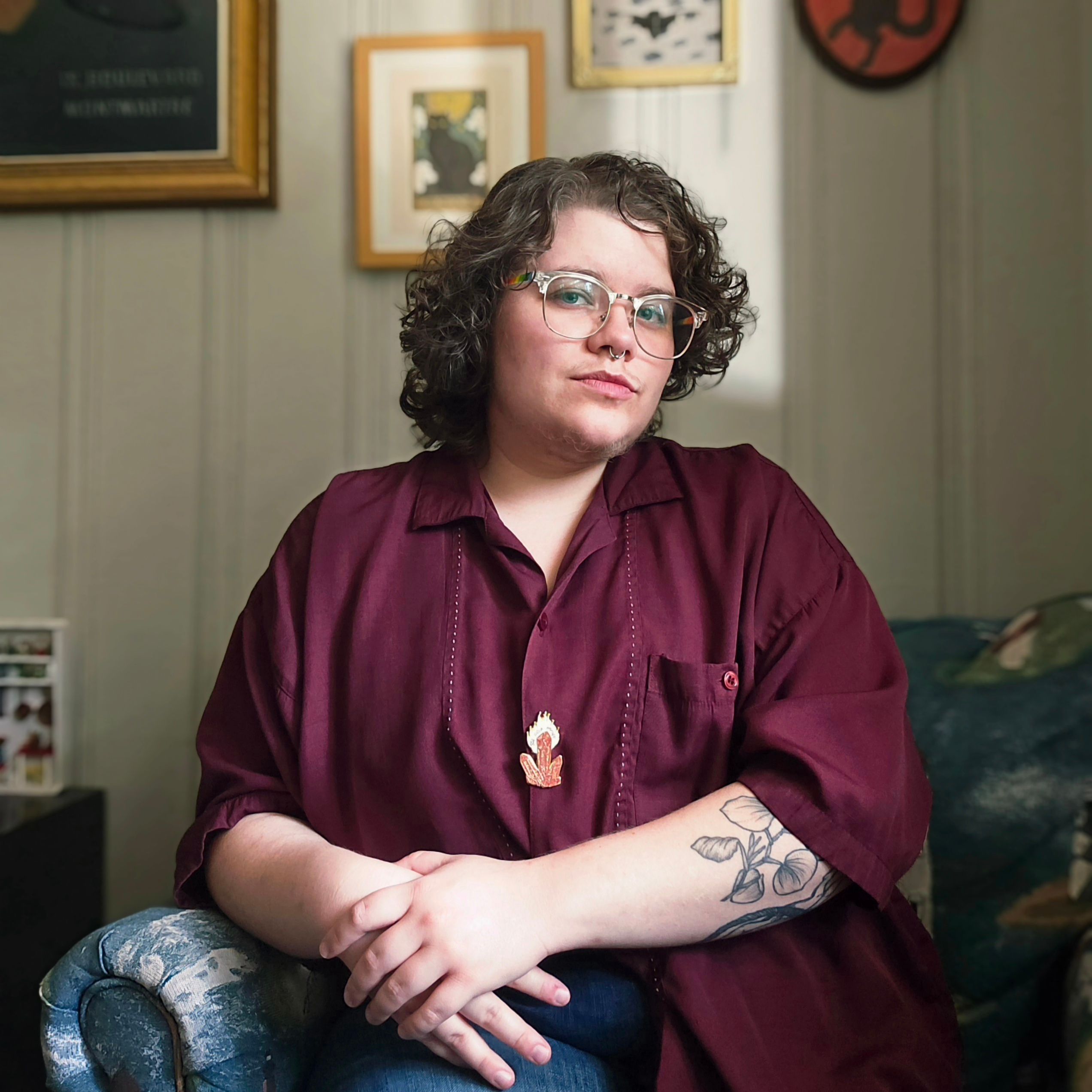They say she pulled The Baby out from the ground with her bare hands.
They say she made a deal with the devil, or Jimmy Page.
They say she fed The Baby the blood of all the neighborhood’s mothers—those who could mother at least.
They say she drank coffee while pregnant.
They say she gave birth at home, or in a birth center, or the forest.
They say she co-slept with The Baby.
They say she was crazy, depressed.
They say it was hormones.
The beginning is just a story. A story of life and then sudden death. Not an uncommon story.
They say after The Baby died, The Mother picked the small body up and had the feeling that two tectonic plates were colliding inside of her—The Baby’s tiny, wrinkled hands thick with rigor mortis; its one tooth peeking out from between little blue lips open in a forever O; its high-pitched hey-lah cry echoing in the silence between them.
They say The Husband wanted to compost The Baby. But holding The Baby’s body in her arms, skin the softness of fallen rose petals, The Mother couldn’t imagine the thought of The Baby breaking down into a thing she wouldn’t be able to touch her lips to.
They say she wanted to hold The Baby forever.
They say The Husband would’ve done anything to get her to let go of The Baby. The Body, he called it.
They compromised, buried The Baby in the backyard under the cherry blossom tree where their first fetus lay. Later The Mother would wonder if it was the power of their two baby essences mixing together that did it. At the funeral though, she just kneeled there, her body inordinately still.
They say she didn’t even cry.
The Husband leaned against the fence across from her, his face dirty, his white t-shirt stained brown, his wet eyes shifting between the shovel and his hands.
They say The Mother went out to the tree every day, sprawled her body in the dirt trying to touch the earth that by association was touching the small body buried below. She listened for the rooting around of a worm tangled in the roots, for the scratching together of miniature insect legs, for anything alive. But she only heard the whoosh of cars and the town’s resident homeless woman screaming about the things that had been taken from her.
But then, on the twelfth day, The Mother heard a soft muffle.
At first she pulled back, sure she was imagining it—the pitch so perfect, the tone so exactly The Baby’s. She brought her ear back to the ground pressing the side of her face against the sharp, red pieces of mulch. And then she screamed into the earth.
Hey-lay, The Baby screamed back.
The Mother tore at the ground. She did not, as she’d been so certain she would, uncover some super-mother power and find herself able to lift the ground in one fell swoop. She had no such power. Maybe because she wasn’t a mother anymore.
She crouched low and dug, and when she finally reached the plain oak coffin The Husband had built to hold The Baby’s body, she tore at the lid, the soft skin beneath her nails staked with soil and black beetles and bits of roots, blood dripping from her fingertips. But The Husband had nailed the coffin shut. As if he knew.
Some people say he did.
The Mother shimmied the coffin from the grave and brought her teeth to the lip of unfinished oak like it was a package of animal crackers. She felt the crack of a tooth, but she didn’t stop, just grabbed and bit, her palms and lips splintered and bleeding, tears streaking the dirt on her cheeks. Until she finally screamed.
And then she was silent. And so was the coffin.
She cradled the coffin, hugging it to her chest, trying to wrap her arms around it entirely, certain that if she could, everything would be okay.
They say she had weird thoughts like that. Illogical. Psychotic.
Sick, they say.
Just as she was ready to surrender, to widen the grave for both their bodies, she heard the scratching of baby nails on wood. She let out a gasp and stood gripping the coffin to her body, the heft of it pressing into her still separated abs, her still swimming organs.
She tore across the yard to the garage, typed in the code, and when the door opened, she saw it: her great-grandmother’s tarnished green butterknife lying next to the tin of beeswax she’d used to finish The Baby’s crib only weeks before. Placing the miniature coffin on the workbench, she picked up the knife jamming it between the fault lines of the box and pried, the knife bending under the pressure. She had an urge to hit the coffin against the cement floor, but The Baby was still inside.
She pried and pried until the coffin crashed to the floor, the cover cracking open. They say The Baby tumbled out, silent, its body face down on the concrete floor, one hand raised above its head as if in greeting.
The Mother couldn’t even do that right. She couldn’t even catch her own baby.
They say she crouched beside the crumpled figure shocked by how new The Baby still appeared, the flesh only just beginning to bloom. She shimmied her hand beneath The Baby’s plump belly, the soft plush of fat pressing into her fingers, and lifted the featherlight thing in her hands. She almost dropped The Baby when she saw its face—eyes wide, searching, mouth open in a smile, its single tooth gleaming and pearlescent beneath the yellow glare of the fluorescent lights. It cooed, and The Mother pressed The Baby to her, its face buried in the softness of her neck.
They say she felt the tiny tooth press against her skin before she let The Baby latch on.



